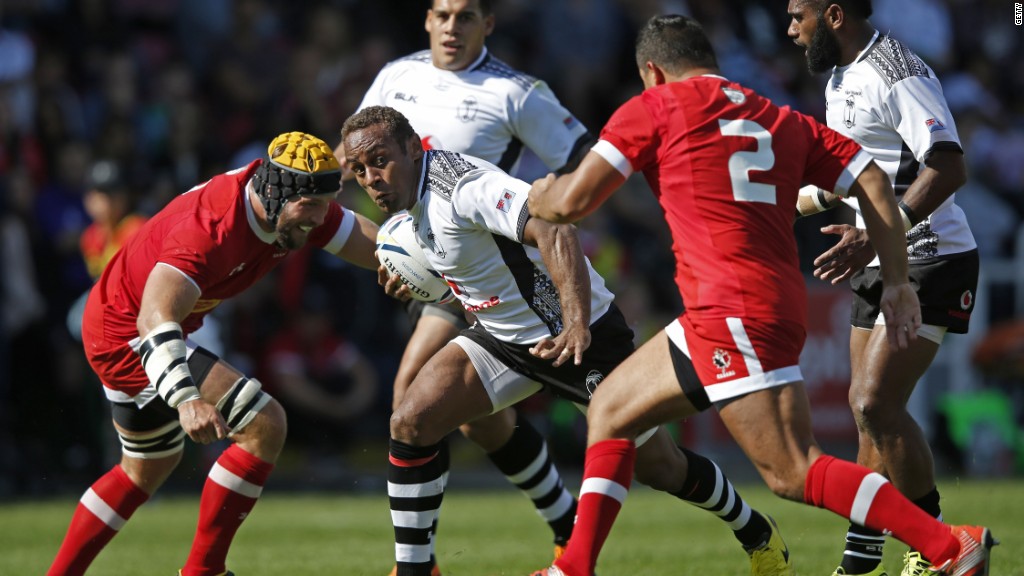
British rugby fans are hoping for World Cup glory in the coming weeks, and the U.K. economy is banking on a win too.
Nearly half a million international visitors are expected at the 2015 Rugby World Cup, which kicks off in London on Friday.
They'll help generate up to £2.2 billion ($3.4 billion) in spending across Britain, analysis by EY shows. That includes money spent in places like restaurants, bars and stadiums during the event.
Britain's GDP could be boosted by £982 million ($1.5 billion) this year as a result.
The tournament, held every four years, is shaping up to be the biggest yet. Only the FIFA soccer World Cup has more paid attendances at a single sport event.
Related: Time for the U.S. to give rugby a try?
The global television audience is also growing fast. The 2011 tournament reached as many as 4 billion people, up from 200 million in 1987.
It's a big opportunity for rugby to gain exposure in the U.S. and other places where the sport is less popular, as it pushes to increase the number of people playing the game from 6.6 million.
The experience of former host nations suggests the U.K. stands a good chance of reaping the economic spoils.
New Zealand, the reigning world champion, enjoyed a 0.3% boost to GDP after putting on the event in 2011. Tourism spending rose, and 93% of international visitors said they wanted to return to the country.
"Exposure places [the host] in a global shop window for attracting business investment and tourists," EY said.
Related: NFL revenue: Here comes another record season
Britain should also escape the "winner's curse" that can afflict countries hosting major sporting events, leaving them financially worse off. It's most commonly seen with the Olympic Games, due to the high cost of building stadiums, swimming pools and velodromes that are often left underused after the event.
The Rugby World Cup is far less pricey to host. Just £85 million ($132 million) was invested in infrastructure for the tournament, meaning the organizers have much less to recover to ensure the event breaks even.
And the bulk was spent on upgrades to Twickenham stadium - the London venue which will host the final - and transport links to the site, which will deliver lasting benefits.
There is one economic downside: British workers' productivity could take a hit during the six-week event. A survey by U.K. online job site CV Library found up to 1 in 7 Brits would consider skipping work during the World Cup to watch a game.
